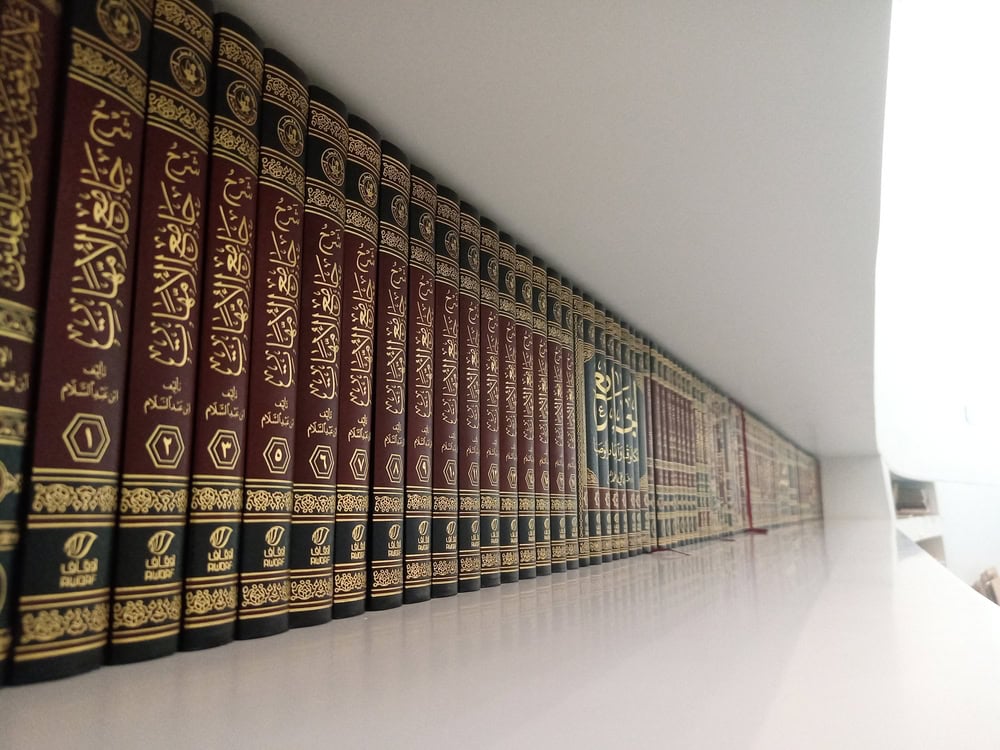How Should We Interpret the Hadith Stating a Tooth Is a Bone, Which Goes Against Science?
Answered by Mawlana Ilyas Patel
Question
I came across a hadith regarding slaughtering animals. The hadith is in Ibn Majah. or Sahih Bukhari 2488: “Rafi’ bin Khadija (Allah be please with him) said “We were with the Prophet (Allah bless him and give him peace) on a journey, and I said: ‘O Messenger of Allah, we are (sometimes) on military campaigns, and we have no knife with us.’
He said: ‘(Use) whatever causes the blood to flow, mention the Name of Allah and eat, but (do not use) teeth or nails, for the tooth is a bone, and the nail is the knife of the Ethiopians.”
I studied anatomy and medicine. Teeth are not considered bones. They are similar to bone, but not bone. How do we understand the hadith? I used Google Translate for the Ibn Hajar explanation. It was a terrible translation; I barely understood anything. How do we understand the hadith, given that it contradicts established knowledge?
Is it possible the Prophet (Allah bless him and give him peace) didn’t mean this, but the narrator added something? Please clarify the hadith for me.
Answer
In the Name of Allah, the Most Merciful and Compassionate
There is no contradiction of established knowledge. The similarity between teeth and bones has been a widely accepted belief throughout history, albeit scientifically, they are not.
‘Abaya bin Rafa’a bin Rafi’ bin Khadij (Allah be pleased with him) narrated, My grandfather said, “We were in the company of the Prophet (Allah bless him and give him peace) at Dhul-Hulaifa. The people felt hungry and captured camels and sheep (as booty). The Prophet (Allah bless him and give him peace) was behind the people. They hurried and slaughtered the animals, put their meat in pots, and started cooking it.
(When the Prophet came) he ordered the pots to be turned over, then distributed the animals (of the booty), regarding ten sheep as equal to one camel. One of the camels fled, and the people ran after it till they were exhausted. At that time, there were few horses. A man threw an arrow at the camel, and Allah stopped the camel with it. The Prophet (Allah bless him and give him peace) said, “Some of these animals are like wild animals, so if you lose control over one of these animals, treat it in this way (i.e., shoot it with an arrow).” Before distributing them among the soldiers.
My grandfather said, “We may meet enemies in the future and have no knives; can we slaughter the animals with reeds?” The Prophet (Allah bless him and give him peace) said, “Use whatever causes blood to flow, and eat the animals if the name of Allah has been mentioned on slaughtering them. Do not slaughter with teeth or fingernails, and I will tell you why: It is because teeth are bones (i.e., cannot cut properly), and fingernails are the tools used by the Ethiopians (whom we should not imitate for they are infidels). [Bukhari]
The Prophet Spoke to the Level of People
This expression and simile are most appropriate to the people’s understanding. The Prophet (Allah bless him and give him peace) always spoke according to the understanding and minds of people. Ali ibn Abi Tālib (Allah be pleased with him) said: “Speak to the people according to their level of understanding. Do you wish that Allah and His Messenger be denied?” [Bukhari].
All people regard teeth as bones, even now. This is the case with many things the Prophet communicated to people. He was not sent to explain and give everything in scientific detail.
I would like you to go through the valuable answers and links below. You will receive guidance and direction in sha Allah.
Why not begin your search for knowledge by signing up for a course on SeekersAcademy (seekersguidance.org), like from the Islamic Studies Curriculum (seekersguidance.org) or Youth Islamic Studies Curriculum (seekersguidance.org), building your way up doing each course?
I pray this helps answer your question.
[Mawlana] Ilyas Patel
Checked and Approved by Shaykh Faraz Rabbani
Mawlana Ilyas Patel has received traditional education in various countries. He started his schooling in the UK and completed his hifz of the Quran in India. After that, he joined an Islamic seminary in the UK, where he studied secular and Aalimiyya sciences. Later, he traveled to Karachi, Pakistan, and other Middle Eastern countries to further his education. Mawlana has served as an Imam in the Republic of Ireland for several years and taught the Quran and other Islamic sciences to both children and adults. He also worked as a teacher and librarian at a local Islamic seminary in the UK for 12 years. Presently, he lives in the UK with his wife and is interested in books and gardening.
